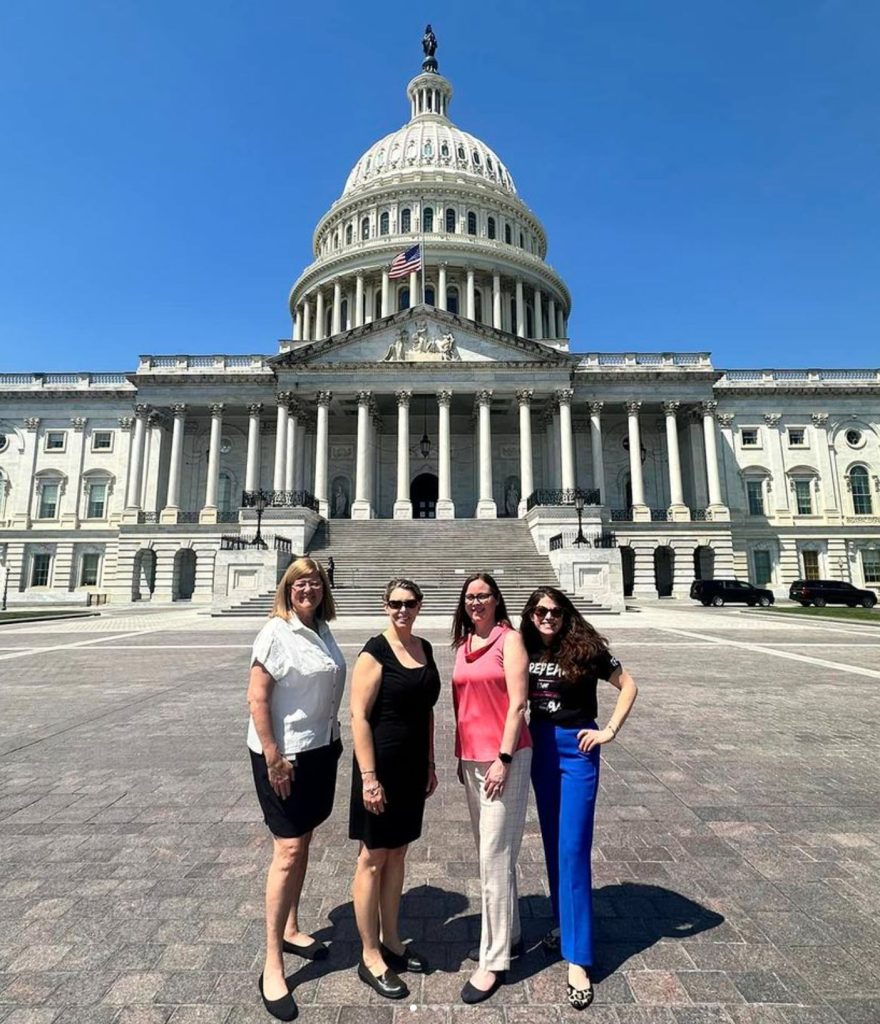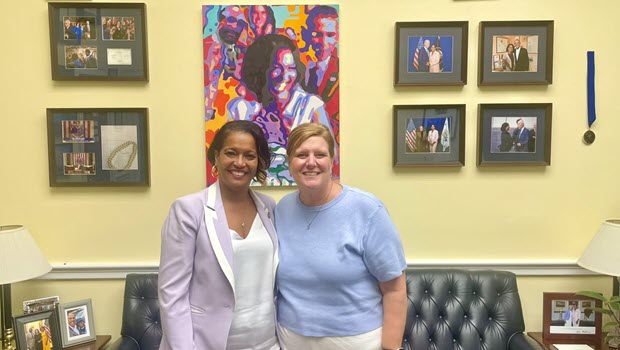CEA leaders are joining NEA directors and leaders from state education associations across the country this week in Washington, D.C., to meet with members of Congress to champion teachers’ priorities.
CEA President Kate Dias, Vice President Joslyn DeLancey, Treasurer Stephanie Wanzer, NEA Directors Katy Gale and Tanya Kores, and NEA Director Alternate Carrie Cassady are in D.C., meeting with Connecticut Senators and U.S. Representatives about issues including education funding, WEP/GPO, the Individuals with Disabilities Education Act (IDEA), and more.
“I had the opportunity to meet with both Congressman John Larson and Congresswoman Jahana Hayes this week,” said Dias. “Both made time for me to sit in their offices and talk about the importance of fully funding education—specifically special education. We can definitely count on their support. They are also advocates for repealing the harmful Social Security penalties being laid on our educators.”
 She added, “I also had the opportunity to see Congressman Joe Courtney recently at a back-home meeting of the New England Council where he shared the many challenges and opportunities in front of Congress today. I’m proud that our Connecticut delegation can be counted on as reliable supporters and vocal advocates of public education.”
She added, “I also had the opportunity to see Congressman Joe Courtney recently at a back-home meeting of the New England Council where he shared the many challenges and opportunities in front of Congress today. I’m proud that our Connecticut delegation can be counted on as reliable supporters and vocal advocates of public education.”
The Government Pension Offset (GPO) and Windfall Elimination Provision (WEP) deprive more than 2.8 million educators and other dedicated public servants of Social Security benefits they have earned. CEA leaders have been forceful advocates for repeal and champion the cause every time they meet with members of Congress. They are supporting the bipartisan Social Security Fairness Act (S. 597/H.R. 82), which has 53 cosponsors in the Senate and 318 in the House.
When Congress passed IDEA, it promised the federal government would pay 40 percent of excess special education costs but the federal share has never come close to that—it’s currently less than 13 percent. Congress’ failure to fund IDEA fully has shifted costs to states and school districts, forcing them to choose between raising taxes, cutting critical services, or diminishing opportunities and programs for all students by redirecting general education funds.
CEA members told the Connecticut congressional delegation that NEA strongly supports the IDEA Full Funding Act, which would increase the federal share of IDEA funding to 40 percent over a 10-year period. The bill has 140 cosponsors in the House and 32 in the Senate.







